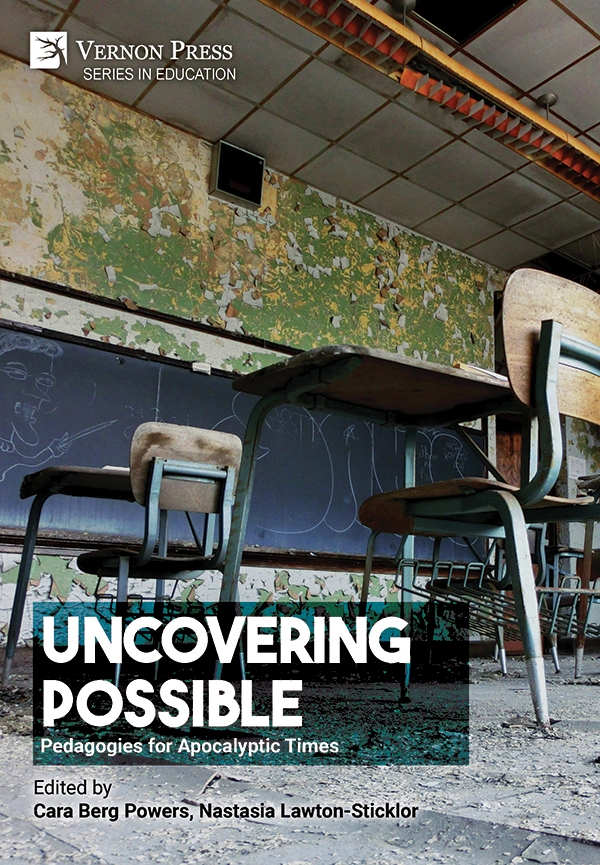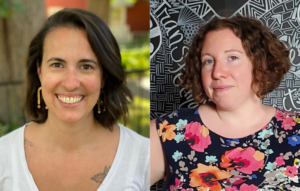Uncovering Possible: Pedagogies for apocalyptic times
The Project
Uncovering Possible: Pedagogies for apocalyptic times is an edited volume holding our experiences as educators, activists, and community members navigating the global pandemic of the past several years. This pandemic is situated within the context of ongoing interconnected crises: oppressive systems, worsening climate, and economic urgency, all at an unsustainable pace. The work in this volume faces the grief, loss and injustice that apocalypse brings, as well as engaging with possibility and intentional, resilient joy necessary to build a better world. This volume is an invitation to explore both the impacts of this and many other apocalyptic events in learning spaces, as well as (re)imagine what’s essential to learning in community.
Unpacking the reverberating effects of the most severe pandemic that we have seen in our lifetimes has both literal and contextual implications. The past several years operating at varying states of “normality” in the midst of a highly contagious and serious virus has uncovered both the chasms of inequity endemic to late stage capitalism as well as the possibilities for relationship and community. For many of us, March 2020 brough the world to a halt. We said goodbye to students, family, and neighbors, unsure when we’d see them again. Educators, organizers, and community builders pivoted, many of us without training or support, to connecting virtually, working to keep connections we’d established across distance.
This apocalypse is situated in a social context that transcends this one event. For many, apocalypse has, and continues to happen through colonial white-supremacist capitalism. What we carry forward must include the collective knowledges capable of carrying us not just through this apocalypse but the apocalypses ahead.

What’s in the book?
stories from the field
Chapters from educator and organizer practitioners of their experiences and learnings from the past few years. In particular we are excited to share these chapters that are grounded in theories such as culturally sustaining pedagogies, accessibility for students of all physical, intellectual, and emotional abilities, trauma-informed spaces, and critical care.
Conversations and Ideas
Read a series of conversations from educators, activists, mutual aid organizers, students, and more. In our closing chapter, you’ll hear directly from 6-14 year olds about their experiences over the past 5 years, and what they want to build for the future.
Hope and inspiration
Poetry, instructional manuals, and worksheets to bring these ideas into your own community are some of the things that make this an unusual academic offering. We think it’s exactly the kind of organized chaos that the moment calls for, and we hope you will to!
Editors

Nastasia Lawton-Sticklor and Cara Berg Powers
Who We Are
Dr. Lawton-Sticklor and Dr. Berg Powers have both straddled the worlds of youth education and higher ed, and are particularly interested in amplifying youth and practitioner voices, community-based research, and the role of youth in social change.
Nastasia is a fellow at the Climate Disobedience Center with a research interest in restorative transitions from fossil fuels and a transformative justice approach to climate activism. She was previously a researcher at the Hiatt Center for Urban Education since 2013 and worked in student supports in Boston Public Schools.
Cara is currently the Massachusetts State Director of Brown’s Promise, supporting state policy and litigation toward school integration. For the last five years, she was a Visiting Lecturer in Community, Youth and Education Studies at Clark University since 2020, in addition to her community-based convening and activism. Prior to that she was Executive Director of the Boston-based youth and community arts organization Transformative Culture Project.